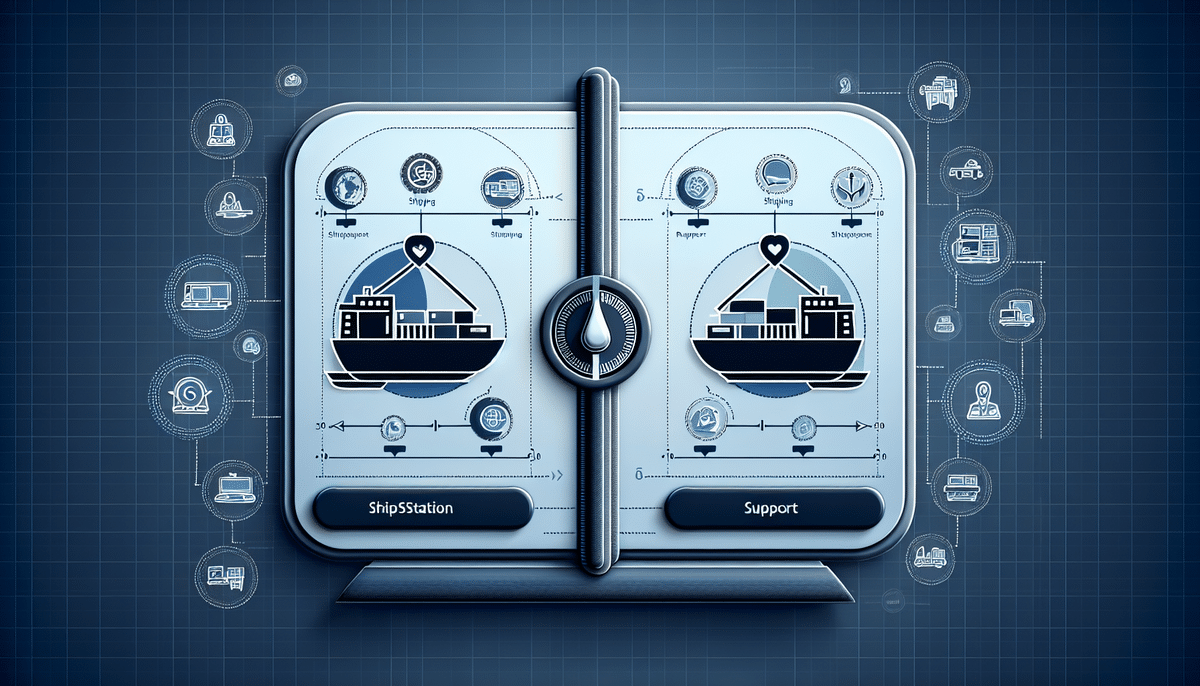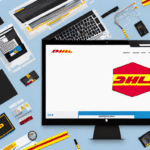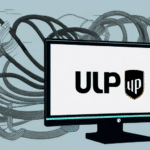Introduction to Shipping Software
In the competitive world of eCommerce, efficient shipping is crucial for business success. Shipping software streamlines the shipping process, reduces costs, and enhances customer satisfaction by automating tasks such as printing shipping labels, managing orders, and selecting optimal shipping carriers. According to a Statista report, global eCommerce sales are projected to reach $6.54 trillion by 2023, highlighting the importance of efficient shipping solutions.
Real-time package tracking is one of the standout features of modern shipping software, allowing businesses to keep customers informed about their order status, thereby increasing loyalty and trust. Additionally, these tools provide valuable insights into shipping trends and patterns, enabling businesses to make data-driven decisions and optimize their shipping strategies.
Overview of ShipStation and ShipRush
What is ShipStation?
ShipStation is a cloud-based shipping software tailored for small to medium-sized businesses. It offers a robust set of features including multi-channel selling, batch shipping, address verification, and real-time tracking. ShipStation integrates with over 100 shipping carriers and eCommerce platforms, making it a versatile choice for diverse business needs.
ShipStation also provides comprehensive reporting and analytics tools, enabling businesses to monitor shipping costs, identify trends, and refine their shipping strategies to enhance efficiency and reduce expenses.
What is ShipRush?
ShipRush is another shipping software solution designed for small to medium-sized enterprises. It offers features such as automated shipping and tracking, rate comparison, and batch processing. ShipRush distinguishes itself with seamless integration with accounting software like QuickBooks and major marketplaces such as eBay and Amazon.
Additionally, ShipRush provides a mobile app that allows users to manage shipments on the go, offering real-time tracking and the ability to print shipping labels directly from mobile devices. This is particularly beneficial for businesses with high shipping volumes or remote employees.
Feature Comparison
Core Features
- Automated Shipping Labels: Both ShipStation and ShipRush automate the creation of shipping labels, reducing manual effort.
- Batch Processing: Both platforms support batch processing, enabling the management of multiple orders simultaneously.
- Order Tracking: Real-time tracking features are available in both software, enhancing transparency for customers.
- Shipping Rates: Both provide real-time shipping rates, allowing businesses to choose the most cost-effective option.
Advanced Features
ShipStation offers additional features such as inventory management and customizable packing slips, which are beneficial for businesses looking to optimize their operations further. On the other hand, ShipRush excels with its integration with QuickBooks and offers discounted FedEx rates, which can be a cost-saving factor for businesses with significant shipping volumes.
Pricing Plans
ShipStation Pricing
ShipStation offers a tiered pricing structure based on the number of shipments per month:
- Starter: $9/month for up to 50 shipments
- Basic: $29/month for up to 500 shipments
- Unlimited: $59/month for unlimited shipments
- Enterprise: Custom pricing for large-scale operations
The Enterprise plan includes advanced features such as custom integrations and dedicated account management, making it suitable for larger businesses with complex shipping needs.
ShipRush Pricing
ShipRush offers the following pricing plans:
- Essential: $29.95/month for unlimited shipments
- Professional: $59.95/month with additional features
- Enterprise: $99.95/month with premium support
ShipRush provides discounted rates for annual billing and offers free trials, allowing businesses to evaluate the software before committing.
Choosing between the two depends on your business needs. While ShipRush offers more affordable flat-rate pricing, ShipStation provides a scalable pricing model that can grow with your business.
Ease of Use and Customer Support
Ease of Use
Both ShipStation and ShipRush are designed with user-friendly interfaces. ShipStation is praised for its intuitive design and extensive customization options, allowing businesses to tailor the software to their specific workflows. However, this level of customization can result in a steeper learning curve for some users.
ShipRush, on the other hand, offers a more streamlined interface, making it easier for users to quickly manage shipments without navigating through numerous settings. This simplicity is ideal for businesses that prefer a straightforward shipping solution without extensive customization.
Customer Support
Customer support is a critical factor in choosing shipping software. ShipStation provides 24/7 support through chat, phone, and email, along with a comprehensive knowledge base and community forum. Additionally, higher-tier plans include access to dedicated account managers, offering personalized assistance for complex shipping needs.
ShipRush also offers 24/7 chat support, phone support, and online resources. However, it does not provide dedicated account managers, which might be a limitation for businesses requiring more personalized support.
In terms of customer support, ShipStation has a slight edge due to its broader range of support options and personalized assistance for larger businesses.
Integrations and Shipping Rates
Integrations
Integrations with eCommerce platforms and marketplaces are essential for seamless operations. ShipStation integrates with over 100 platforms, including Shopify, Amazon, eBay, and Walmart. This extensive network allows businesses to manage orders from multiple channels in one place.
ShipRush integrates with key platforms like Amazon and eBay and has a strong integration with QuickBooks, catering to businesses that require seamless accounting and shipping synchronization. However, it offers fewer overall integrations compared to ShipStation.
Shipping Rates and Carriers
Both ShipStation and ShipRush support a wide range of shipping carriers, including USPS, FedEx, UPS, and DHL. ShipStation provides real-time shipping rates based on package size and destination, allowing businesses to choose the most cost-effective carrier for each shipment.
ShipRush offers competitive shipping rates, particularly with discounted FedEx rates, which can result in significant savings for businesses with high shipping volumes. Both platforms allow for the automation of shipping rules and batch label printing, enhancing shipping efficiency.
Pros and Cons
Pros of ShipStation
- Extensive integrations with over 100 eCommerce platforms and shipping carriers
- Advanced features such as inventory management and customizable packing slips
- User-friendly interface with high customization capabilities
- 24/7 customer support with dedicated account managers for higher-tier plans
- Comprehensive mobile app for managing shipments on the go
Cons of ShipStation
- Higher pricing plans, especially for the Enterprise option
- Complexity due to a vast array of features may lead to a steeper learning curve
Pros of ShipRush
- More affordable flat-rate pricing plans suitable for small businesses
- Strong integration with QuickBooks for streamlined accounting and shipping
- Discounted FedEx rates, providing cost savings on shipments
- Simple and intuitive interface, ideal for users seeking ease of use
Cons of ShipRush
- Fewer integrations with eCommerce platforms and shipping carriers compared to ShipStation
- Less advanced features, limiting customization and scalability
- Limited customer support options without dedicated account managers
Choosing the Right Shipping Software for Your Business
Selecting the right shipping software depends on your business's specific needs, budget, and growth plans. If your business requires extensive integrations, advanced features, and robust customer support, ShipStation is likely the better choice. Its scalable pricing plans and comprehensive feature set make it suitable for businesses anticipating growth and increased shipping volumes.
Conversely, if your business prioritizes affordability, ease of use, and strong integration with accounting software like QuickBooks, ShipRush may be the more appropriate solution. Its flat-rate pricing and user-friendly interface cater to small businesses and those with straightforward shipping needs.
Ultimately, it's advisable to take advantage of the free trials offered by both platforms to evaluate their features and determine which aligns best with your operational requirements and budget constraints.
Conclusion: Final Verdict on ShipStation vs ShipRush
Both ShipStation and ShipRush offer valuable shipping solutions tailored to different business needs. ShipStation excels with its extensive integrations, advanced features, and comprehensive customer support, making it ideal for growing businesses that require a versatile and scalable shipping solution.
ShipRush, on the other hand, stands out for its affordability, seamless QuickBooks integration, and user-friendly interface, making it a great fit for small businesses and those seeking a straightforward shipping management tool.
Carefully assess your business requirements, shipping volume, and budget to choose the software that will best support your eCommerce operations and drive efficiency.




















